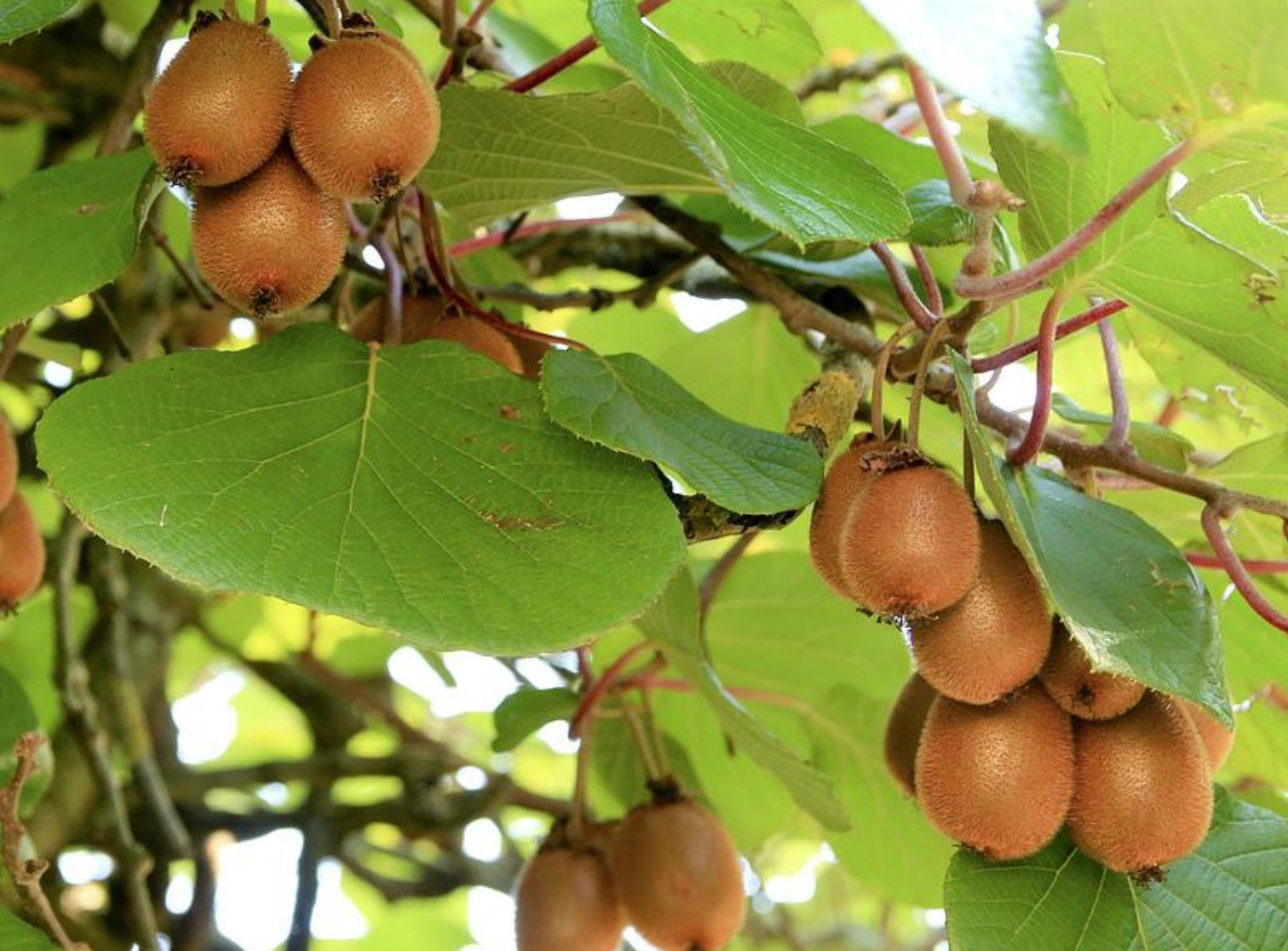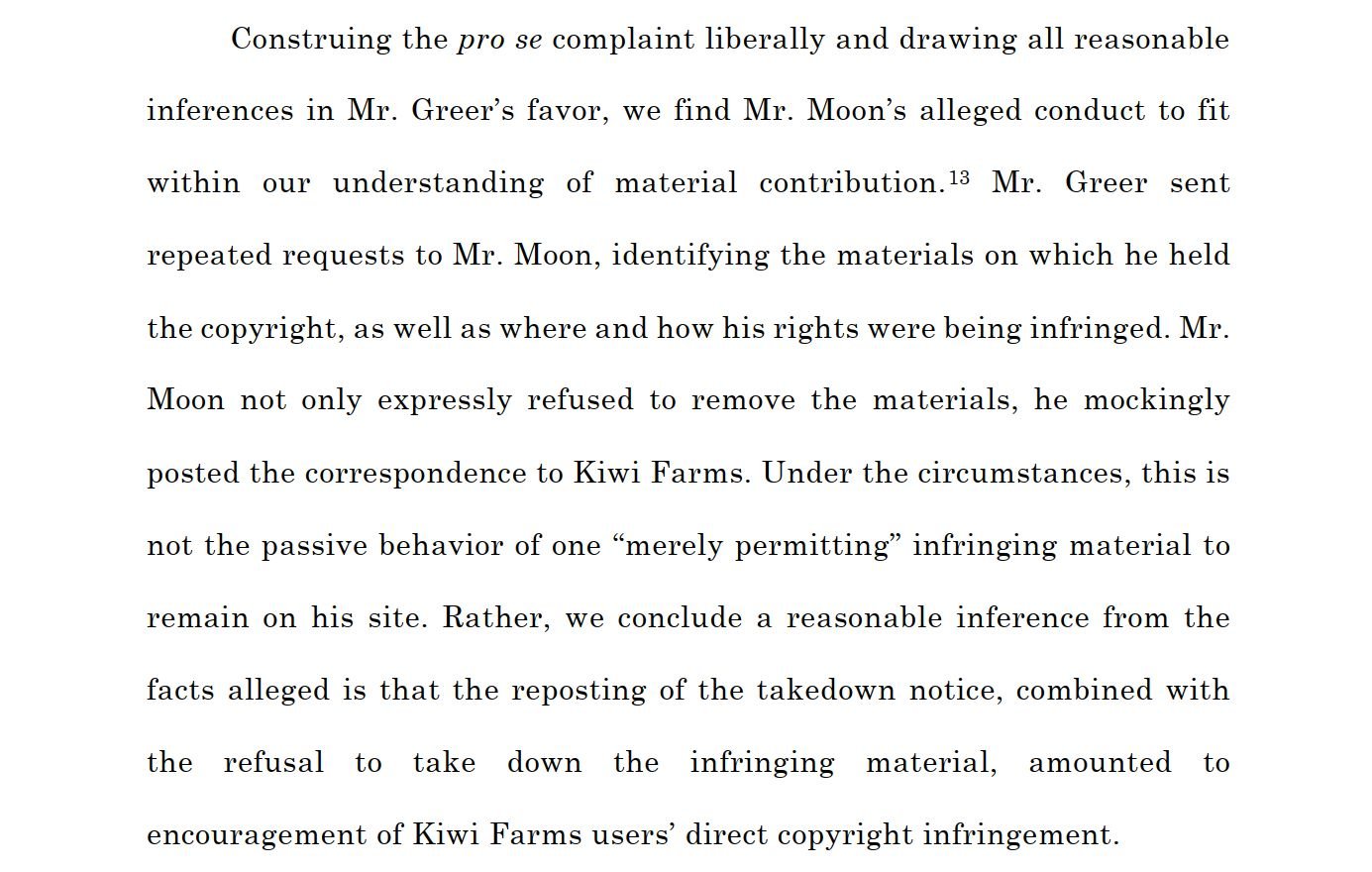
 Kiwi Farms is an online forum with a reputation for mocking and harassing people, actions that have been linked to several tragic deaths.
Kiwi Farms is an online forum with a reputation for mocking and harassing people, actions that have been linked to several tragic deaths.
In response to the barrage of negative news, several third-party providers including DreamHost, DDoS-Guard and Cloudflare have all banned the site.
These voluntary curation actions are just the tip of the iceberg. Behind the scenes, many other services refused to work with the controversial site. Hurricane Electric, a Tier 1 Internet backbone provider, reportedly refused to pass on the site’s traffic across the Internet.
It’s no surprise that companies want to distance themselves from the highly controversial forum. However, it’s a slippery slope when backbone providers start to censor speech on their own accord. Ideally, such restrictive measures should be backed by a court order.
None of the cases referenced above went before a court but Kiwi Farms and its founder Joshua Moon were sued for copyright infringement. A person who was systematically targeted through Kiwi Farms took the site and Moon to court three years ago.
Greer Sues Kiwi Farms
The copyright infringement claims were filed by Russell Greer, who was targeted by Kiwi Farms users when he sued Taylor Swift years ago. Greer wrote a book about his experiences and later recorded a song too. These copyrighted works eventually made their way back to Kiwi Farms, where pirated copies were shared by site users.
In response, Greer issued takedown notices to have his works removed from the site, but to no avail. Kiwi Farms’ Joshua Moon refused to remove the content and published the DMCA notices on the site, openly mocking the author.
These actions prompted Greer to file a complaint at a federal court in Utah, accusing Moon of contributory copyright infringement. The complaint alleged that Kiwi Farms users infringed Greer’s copyrights, that Moon was aware of this, and that he knowingly permitted these infringing activities.
Contributory Infringement Claim Fails
In a decision issued in 2021, a district court agreed that Kiwi Farms’ operator was aware of the infringing activities. However, to establish contributory liability, a defendant must “induce, cause, or materially contribute” to the activity. The court found no evidence of that and dismissed the claim.
The district court sympathized with Greer, noting that “it sounds like people on Kiwi Farms have said vile things about him and made his life miserable,” but concluded that his copyright liability claims fell short.
Greer wasn’t pleased with the outcome and appealed the ruling. This week, the U.S. Court of Appeals for the Tenth Circuit concluded that the contributory copyright claims are indeed sufficient, so the case will now return to the lower court.
The reasoning behind the court’s conclusion is interesting. For starters, the court of appeal agreed with the lower court that simply refusing to comply with a takedown notice isn’t sufficient to establish contributory copyright infringement.
“We discern no error in the district court’s explanation that contributory liability requires more than merely ‘permitting’ the infringing material to remain on the website,” the decision reads.
Court of Appeal Views Publishing as Encouragement
In this case, however, the court of appeals believes that by publishing and mocking the DMCA takedown notice in public, Kiwi Farms’ operator effectively ‘encouraged’ the site’s users to continue their copyright infringing activities.
“Mr. Greer sent repeated requests to Mr. Moon, identifying the materials on which he held the copyright, as well as where and how his rights were being infringed. Mr. Moon not only expressly refused to remove the materials, he mockingly posted the correspondence to Kiwi Farms,” the court notes.
“Under the circumstances, this is not the passive behavior of one ‘merely permitting’ infringing material to remain on his site. Rather, we conclude a reasonable inference from the facts alleged is that the reposting of the takedown notice, combined with the refusal to take down the infringing material, amounted to encouragement of Kiwi Farms users’ direct copyright infringement.”

Put differently, site operators are not liable for copyright infringement when they refuse to take action following a takedown notice. However, when they publish that same notice online, they can incur liability.
‘What a Mess’
Summarizing pages-long rulings strewn with legal nuances isn’t straightforward, but in this case the court’s findings are puzzling to legal experts too. Law professor Eric Goldman points out several issues, including a mix-up of legal doctrines and how the court’s conclusions have the potential to negatively affect takedown notice transparency.
“[T]he court seems to be saying that Moon’s inaction was OK, but Moon’s inaction + posting the takedown notice is not OK. What?” Goldman writes.
“This suggests that all contributors to Lumen have exacerbated their legal risk by providing greater transparency into the shadowy world of copyright takedown notices. That cannot be the right legal standard, and I am reasonably confident no other court would reach that conclusion. Oy, what a mess.”
Indeed, the district court ruling was great news for online services, as it confirmed that they can’t be held liable for refusing to act on a DMCA takedown notice. However, if posting that same notice publicly makes them liable, we might see less transparency going forward.
Of course, there are plenty of nuances to this case. Kiwi Farms’ operator didn’t automatically publish the takedown notice; Moon specifically selected this particular DMCA notice and openly mocked it. That ‘active’ choice may be seen as a crucial distinction.
The court of appeals ruling means that the matter will now revert to the district court for further consideration. Given the unique characteristics of the decision and its potential impact, legal experts will be following it closely.

—–
A copy of the ruling by the U.S. Court of Appeals for the Tenth Circuit is available here (pdf)
- SEO Powered Content & PR Distribution. Get Amplified Today.
- PlatoData.Network Vertical Generative Ai. Empower Yourself. Access Here.
- PlatoAiStream. Web3 Intelligence. Knowledge Amplified. Access Here.
- PlatoESG. Carbon, CleanTech, Energy, Environment, Solar, Waste Management. Access Here.
- PlatoHealth. Biotech and Clinical Trials Intelligence. Access Here.
- Source: https://torrentfreak.com/kiwi-farms-copyright-battle-could-spell-bad-news-for-dmca-transparency-231019/




